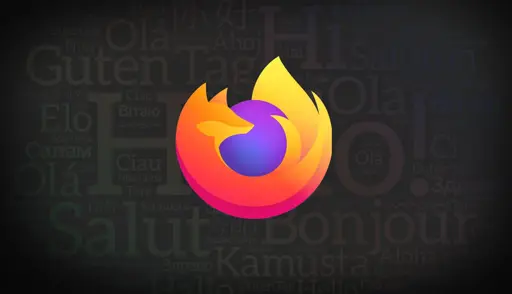Hot off the back of its recent leadership rejig, Mozilla has announced users of Firefox will soon be subject to a ‘Terms of Use’ policy — a first for the iconic open source web browser.
This official Terms of Use will, Mozilla argues, offer users ‘more transparency’ over their ‘rights and permissions’ as they use Firefox to browse the information superhighway — as well well as Mozilla’s “rights” to help them do it, as this excerpt makes clear:
You give Mozilla all rights necessary to operate Firefox, including processing data as we describe in the Firefox Privacy Notice, as well as acting on your behalf to help you navigate the internet.
When you upload or input information through Firefox, you hereby grant us a nonexclusive, royalty-free, worldwide license to use that information to help you navigate, experience, and interact with online content as you indicate with your use of Firefox.
Also about to go into effect is an updated privacy notice (aka privacy policy). This adds a crop of cushy caveats to cover the company’s planned AI chatbot integrations, cloud-based service features, and more ads and sponsored content on Firefox New Tab page.



Being a “non-profit” doesn’t mean the company “shouldn’t make profit” … It means that the owners/investors don’t earn anything extra based on profit. The organization itself still needs to be financially sustainable.
As shady as Mozilla is, they’re competing against a functional monopoly, so the playing field is hardly fair.
yeah this is a part we need to recognize. right now there are essentially three browsers. Chrome, Safari, and Firefox. Every other browser is some derivative of one of these- mostly Chromium.
Google can change some small detail about how they render HTML or a small part of their JS engine and that has global effects all over the internet. Without a Firefox to compete, they will implement policies to hurt the consumer. People think just because Chromium is open source that this mitigates the risk.
Google’s V8 javascript engine does not only power all Chrome and chrome-derivatives, it also powers nodeJS and therefore vast swathes of server-side javascript as well.
it’s actually difficult to understate how much raw power Google has in determining what you see on the internet and how you see it
we desperately need Firefox. I really hope that an open source alternative could be viable but it’s been decades and we haven’t had a real browser pop into existence. will the death of Firefox mean something else comes out? Or will the death of Firefox be the last nail in the coffin for a free internet?
Most non-profits are not financially sustainable and rely on donations and grants to operate. If the service they provided could be financially sustainable, a for-profit would popup and operate in that space.
But I agree that non-profits can and should find fee-for-service opportunities and generate revenue to reduce their reliance on gifts.
Fair enough. Although, for those reading at home, I’ll reiterate the distinction between nonprofit and charity; all charities are nonprofits, not all nonprofits are charities. Research universities are an example.
On that note, I guess I’m enough of an academic to not consider grants a “gift” … It’s not consumerism-driven revenue, but it’s hard to call it a gift when you’re on the hook to produce something (research papers & prototypes) that you then turn around and use to sell for more revenue (in the form of grants).